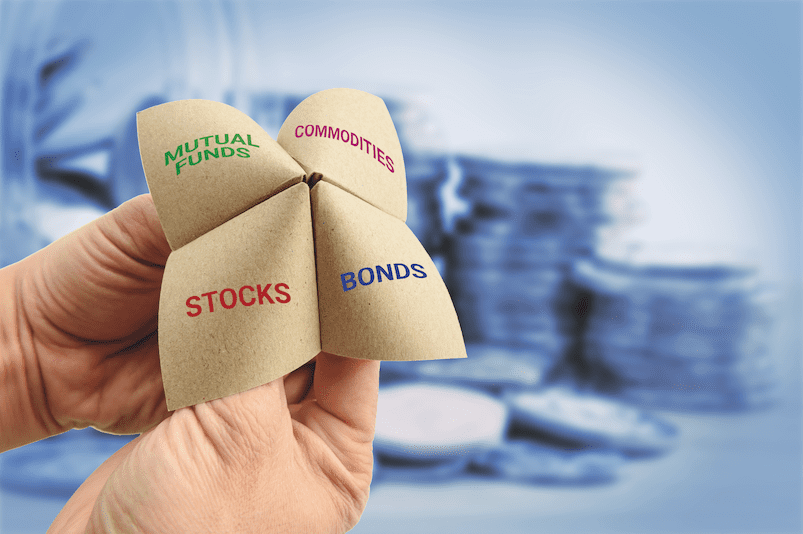As the spread of Covid-19 continues unabated, Embark Group chief investment officer Peter Toogood warned that it is a “recipe for extreme volatility” for global financial markets and a scenario that will likely continue over the coming weeks and months.
Recent unprecedented moves saw the S&P 500 index fell by 20% in just 16 days, its quickest fall on record, while the FTSE 100 dipped to levels not seen since the 1990s and US small caps fell by 30% in three weeks.
Economists have noted two important characteristics of the economic impacts of the Covid-19 crisis; the shock has hit China and all the G7 nations simultaneously and the medical impact is undermining economies at multiple levels, with every sector of the economy impacted at once.
Meanwhile, the normal functioning of the flow of money has been disrupted in several ways, with households suffering from a reduction in income, less money flowing from households to the government, a decrease in the level of imports as well as a drop in demand and/or direct supply shocks, which will lead to disruption to international and domestic supply chains.
Toogood said that the rapid accumulation of non-financial corporate debt in recent years has added to the risks faced by the global economy.
He commented: “The trend for super-efficient balance sheets and the popularity of share buy-backs, notably in the US, leaves some companies with only a narrow margin of safety to withstand more challenging times. This means that, at best, CEOs will now be forced to pull in their horns. In addition, less robust and so-called “concept” businesses, that have only survived this far because of readily available capital, will be vulnerable as financial conditions tighten and risk appetite evaporates.
“Therefore, at this time of sudden economic shock, there is likely to be a greater volume of bankruptcies than would otherwise have been the case, creating yet further disruption to the flow of money.”
According to Toogood, given that corporate earnings for 2020 have to be dismissed, thoughts on pricing risk assets must be taken with a longer-term perspective.
He continued: “In the absence of a reference point for earnings, it is necessary to resort to starting valuations. In this regard, the good news is that the bulk of the world’s equity markets were not expensive ahead of this crisis and they are certainly substantially cheaper now.
“However, the same cannot be said for the US equity market. The S&P 500 index rose by over 30% in 2019, but this was achieved with barely any accompanying earnings growth. Despite the declines already witnessed, the US stock market remains expensive, especially as it is faced with an earnings vacuum.”
Toogood said that the over-valuation of the US remains a significant challenge and this crisis suggests that it should de-rate much further. If the authorities grasp the scale of the required response, Toogood expects to see a relief rally. If not, US equities will suffer further significant losses. While other stocks outside of the US are either cheap or on the right side of fair value, Toogood warned that when the US stumbles, the rest of the world usually follows suit.
Fund manager response
In response to the volatility, fund managers have focused upon strength of corporate balance sheets, competitive positions and the quality of management.
Toogood explained: “Although cyclicals may appear to be cheap, most managers are unwilling to jump in at this point. Any buying has been concentrated in the traditional defensive sectors, such as healthcare and food retailing. The beneficiaries of stay-at-home requirements have also been relatively robust – think Netflix. Bond managers have been improving the quality of their portfolios in recent months, but liquidity is now at a premium.
“We would also note that ahead of this crisis, few managers had significant cash allocations, which means that it will be challenging for them to take full advantage of any recovery.
In face of the growing spread of Covid-19 across the globe, Toogood believes the response from global authorities is critical and will require a mix of fiscal and monetary policy to avoid credit markets seizing up, banks calling in loans and individuals becoming financially vulnerable through no fault of their own.
Toogood hopes to see the equivalent of a global business bail-out, similar in scale to the banking bail-out of the global financial crisis, with a focus upon the hardest-hit industries; airlines, tourism, retailing, restaurants are likely to be the prime candidates.
Looking ahead to investment strategy, Toogood suggested that investors who feel over-exposed to equities should take advantage of any relief rallies to reduce their allocation. For under-exposed investors, accumulating positions on days of weakness would not be an unreasonable approach to take.
He added: “Emerging markets are potentially interesting as they were unloved and under-owned before this crisis began. Equally, selected European and UK equities are beginning to offer value. However, given heightened volatility and the likelihood of further bouts of weakness, we suggest an incremental approach to any buying. We were keen on allocations to real assets prior to this crisis and it is quite clear that gold has a place at this juncture.
“In the longer term, we believe that the governments of the world will lead a global reflation trade, the likes of which we have never witnessed before. In such a highly leveraged world, there is now no alternative but to inflate or write off the debt in the future. In short, a very different and more complex investment landscape is likely to emerge in the next few years.”



































